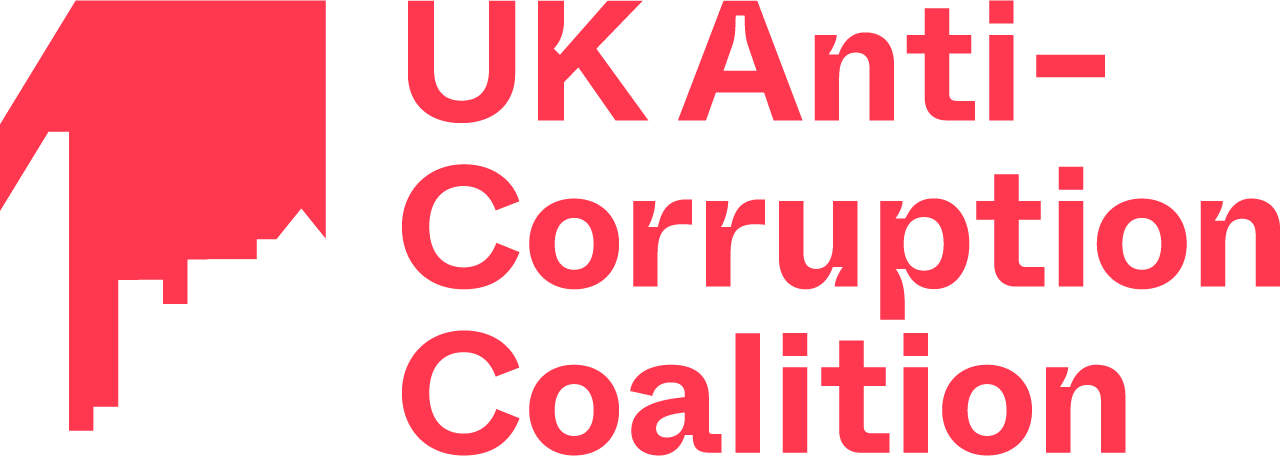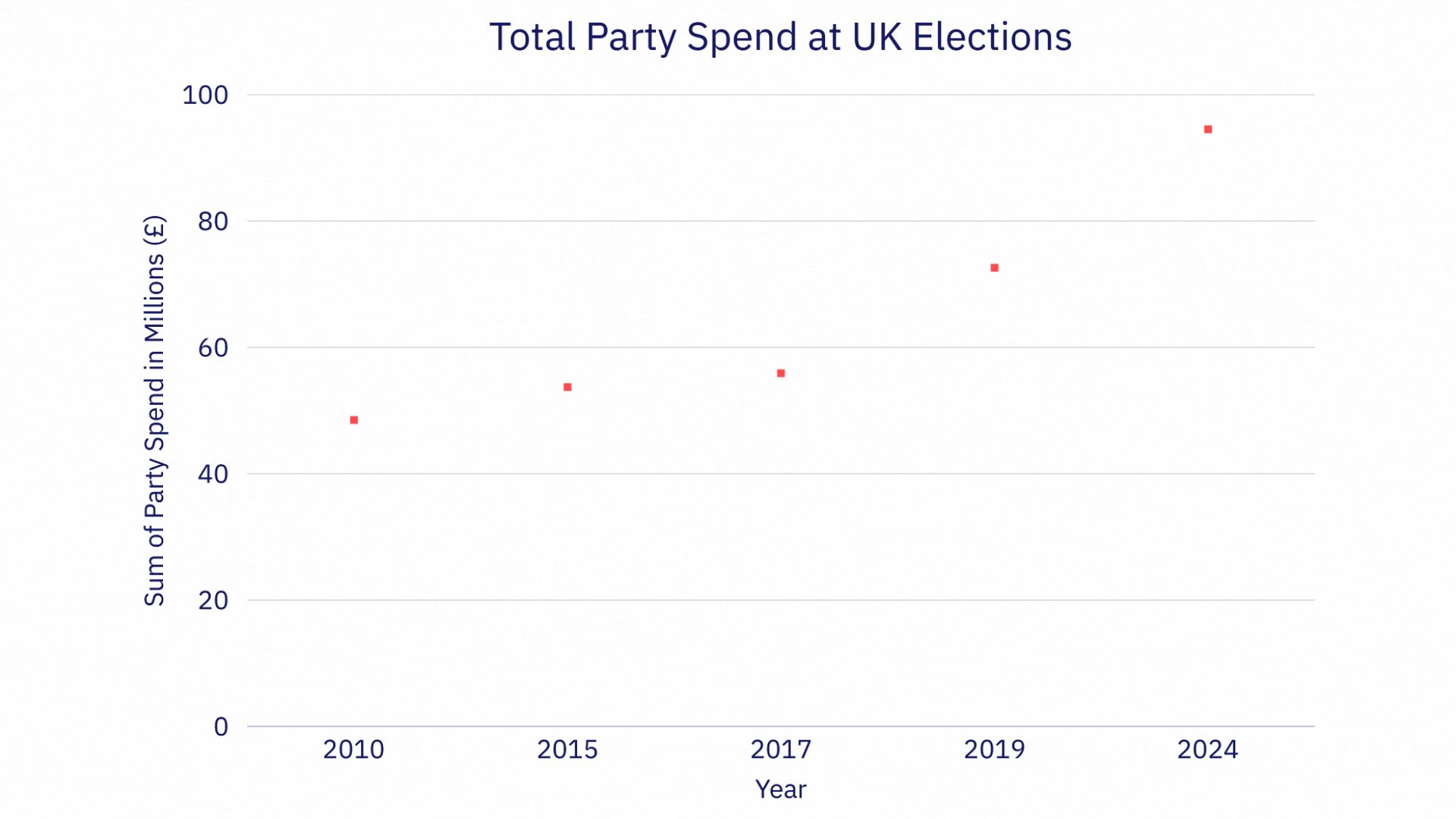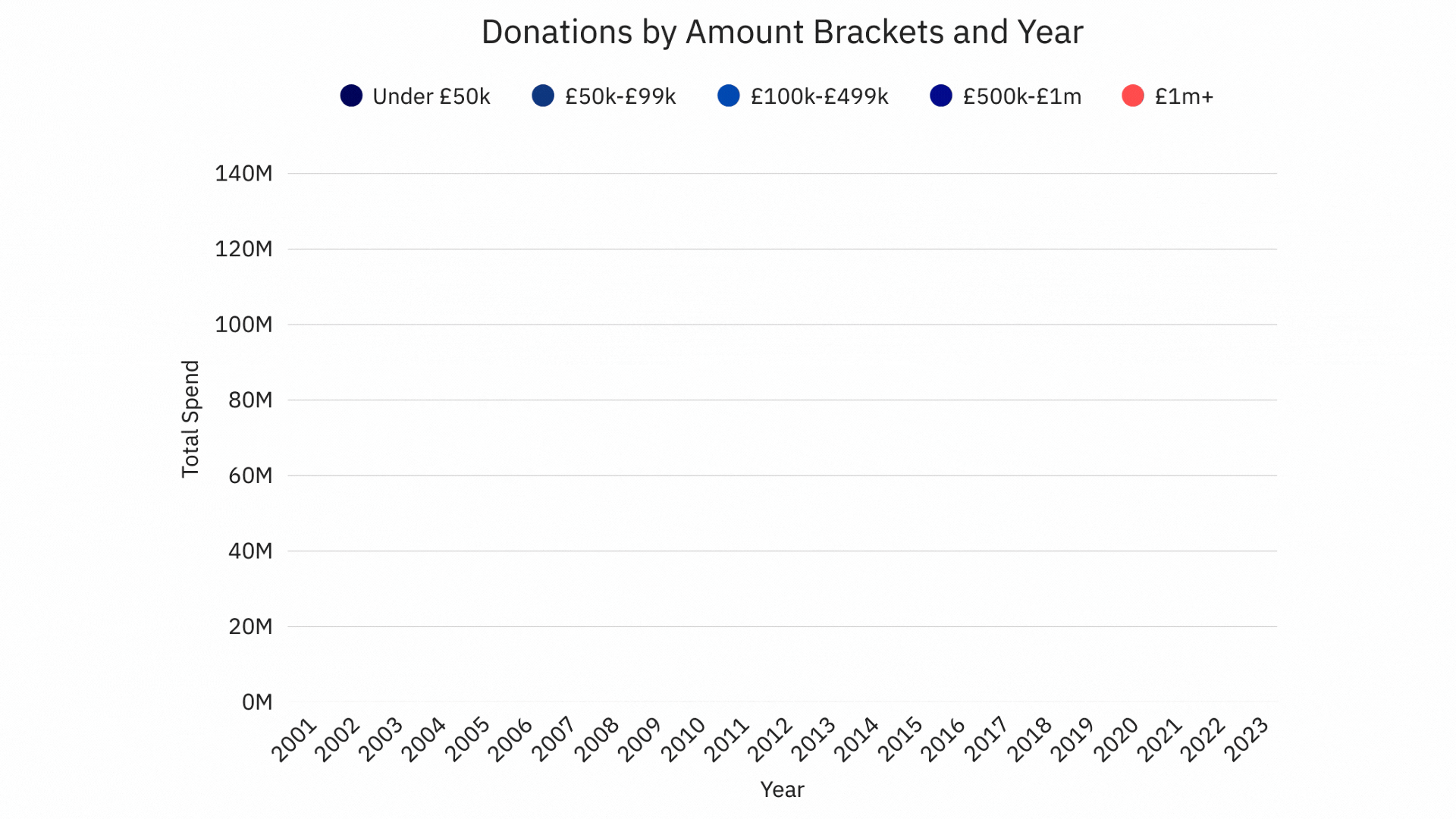It’s official: the 2024 UK General Election was the most expensive in modern history. It’s time to take big money out of politics.
On the same day that the government’s Elections Bill White Paper was released – a document setting out Labour’s plan to “restore trust in our political system” – a report slipped out from the elections watchdog. It detailed how the 2024 election was the most expensive UK election in modern history, costing a whopping £94.5m.
By all standards, this is no small matter. £94.5m is a lot of money – enough to fund free school meals for 216,000 children for a full school year. Put another way, the 2023-24 Serious Fraud Office budget – the office tasked with fighting complex financial crime – was £95.5m.
This eye-watering figure is not a blip. Rather, it fits into a deeply concerning, nearly decades-long trend of ballooning election costs. New analysis shows that following current and historical patterns, spending is only set to keep increasing.
There is a certain irony to these figures being released the same day as the government’s long-awaited strategy for modern and secure elections. The UK Anti-Corruption Coalition has welcomed several of the provisions in this white paper, including the introduction of measures to stamp out dark money in our system, and remains committed to working with the government on its stated mission to turn around the declining trust in our democracy.
Yet these figures from the Electoral Commission put into cold light the fact that big money and trust in politics remain on a collision course. This government must take seriously the need to curb runaway spending and reduce reliance on mega-donors if it hopes to truly restore public confidence in our political process.
Why does it matter how much elections cost?
The very basis of our democracy – of all liberal democracies – is equal access to decision-making power, or, as Former Prime Minister John Major recently put it, "one man, one vote, is an established principle. It must not be supplanted by one man and his money." Forces as old as democracy itself have always attempted to muddy that principle – chief among them, the deployment of wealth and status to influence political decision-making.
This persistent and growing role of money in our politics contributes to the perception wealth allows certain individuals to exert greater influence over political decision-making than those without money. And such concerns are not unfounded.
So how does political election spending feed into this? In a race to the bottom of donors pockets, political parties are focusing on securing donations from a small number of very wealthy individuals. While historically donations from those giving £1 million or more in a year have formed a modest proportion of overall contributions, they have been increasing significantly in recent years, and in 2023 they formed the majority of donations:
This happened to be the same year in which Parliament passed a law to raise the cap on election spending. (A year later, Elon Musk reportedly considered making an £85 million ($100 million) gift to the Reform Party.)
Fast forward to the 2024 general election, and we witness the biggest spend of any general election in British history. Seemingly, this increase in spend is not due to a sudden surge in small, grassroots donations, but is fuelled by big donors and a small handful of wealthy individuals. And this reliance on a small handful of hyper-wealthy donors reinforces the perception, and likely the reality, that money talks in our democracy.
This is a perception that continues to erode trust in politics. We are in an era of widespread disaffection towards politics at best, and a crisis in democratic legitimacy at worst. Nearly two thirds of the UK public believe that the mega-wealthy have too much influence over political decisions, and according to polling by Patriotic Millionaires, 81% of millionaires think extreme wealth buys political influence. Now is the time to change course.
What can be done about this?
Thursday’s White Paper did a lot to re-energise our democracy (think votes for 16 and 17 year olds, and dismantling loopholes that rendered our democracy vulnerable to foreign influence). But it made no steps to address the everpresent issue of big money in our politics. Without changes to the forthcoming Elections Bill, this could be a missed opportunity, particularly given the startling figures on election spending that dropped the same day.
Stronger controls on spending, alongside caps on how much any one donor can give are key parts of the solution. Lowering election spending limits would reduce the arms race between parties, and donor caps would reduce the outsized influence that deep-pocketed billionaires can exert on election outcomes.
So, as Parliament recesses, MPs return to their constituencies, and the public turns its attention elsewhere, this Labour government has an opportunity to confront one of the most corrosive forces in our politics: the unchecked influence of money. Let’s hope it seizes it.


